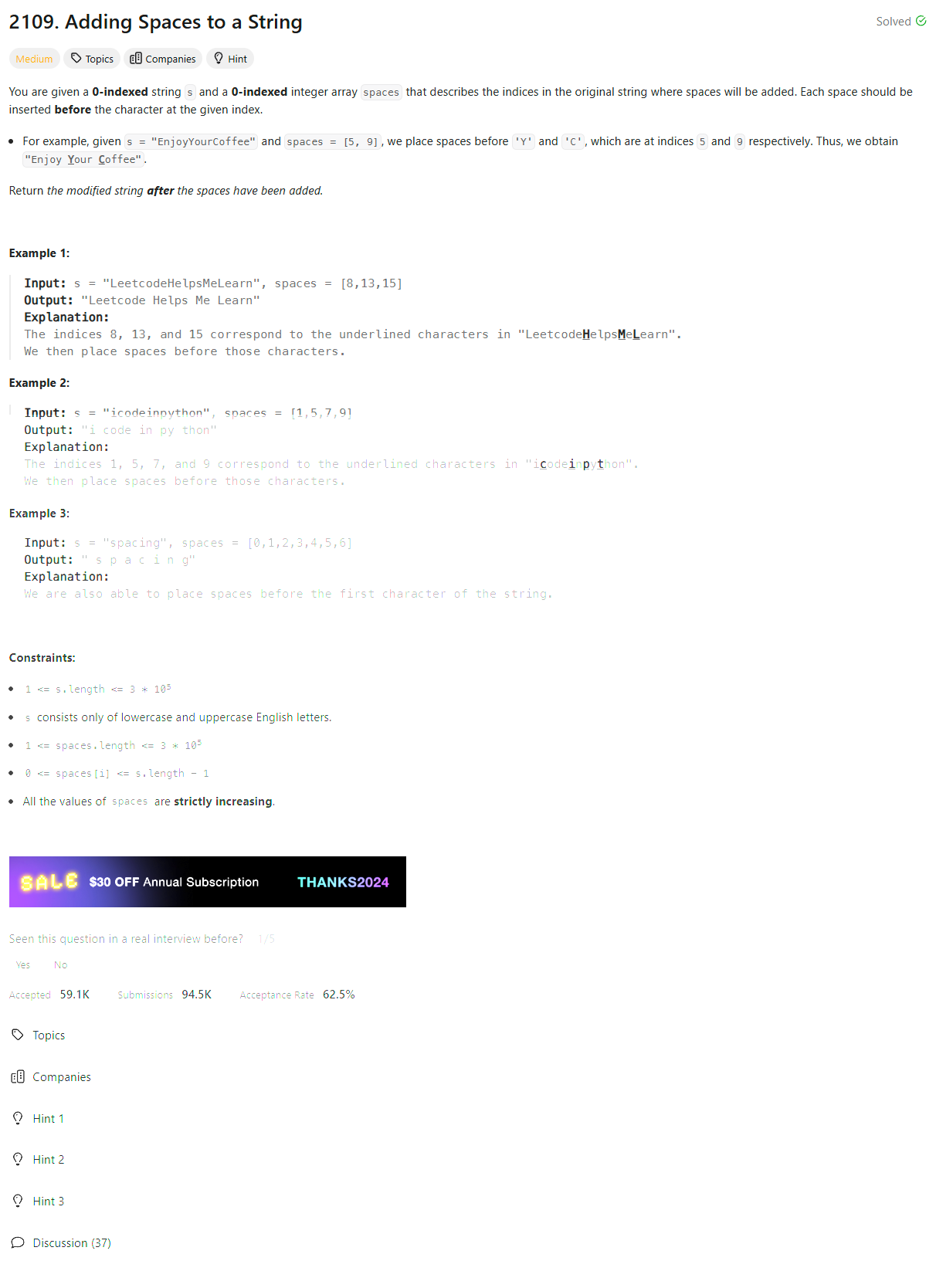Problem of The Day: Adding Spaces to a String
Problem Statement

Intuition
When I first encountered this problem, my initial thought was to treat it like a sequential insertion task where spaces are added into the string at the given indices. However, directly modifying a string while iterating over it isn’t efficient since strings are immutable in Python. Instead, I wanted to find a way to build the final string efficiently while iterating through the characters and indices.
Approach
I decided to use a two-pointer approach with a deque to build the result efficiently. Starting from the end of the string and working backwards simplifies the process because I can handle the indices from spaces in reverse order without needing to adjust them as spaces are inserted.
Here are the detailed steps:
- Convert the string into characters and use a deque to allow efficient addition at both ends.
- Start from the last index of the string and the last space position, iterating backwards.
- For each space index, append characters to the deque until the current space index is reached, then append a space.
- After all spaces are handled, append any remaining characters from the start of the string.
- Finally, join the characters in the deque to form the resulting string.
This approach ensures that we don’t have to repeatedly modify the string, leading to a more efficient solution.
Complexity
-
Time complexity:
\(O(n)\)
The algorithm processes each character in the string exactly once and handles each index inspacesexactly once. -
Space complexity:
\(O(n)\)
Thedequestores the characters of the string, so its size grows linearly with the length of the string.
Code
class Solution:
def addSpaces(self, s: str, spaces: List[int]) -> str:
s_idx = len(s) - 1
list_chars = deque()
while spaces:
curr_idx = spaces.pop()
while s_idx >= curr_idx:
list_chars.appendleft(s[s_idx])
s_idx -= 1
list_chars.appendleft(' ')
for i in range(s_idx, -1, -1):
list_chars.appendleft(s[i])
return ''.join(list_chars)
Editorial
Approach 1: Using Built-in Functions
class Solution:
def addSpaces(self, s: str, spaces: List[int]) -> str:
# List to store characters (more efficient than string concatenation)
result = []
space_index = 0
for string_index in range(len(s)):
if (
space_index < len(spaces)
and string_index == spaces[space_index]
):
# Insert space at the correct position
result.append(" ")
space_index += 1
# Append the current character
result.append(s[string_index])
# Join all characters into final string
return "".join(result)
Approach 2: Two-Pointer Technique
class Solution:
def addSpaces(self, s: str, spaces: List[int]) -> str:
result = []
# Pre-allocate approximate space for efficiency
result = [None] * (len(s) + len(spaces))
space_index = 0
string_index = 0
for char_index in range(len(s)):
if space_index < len(spaces) and char_index == spaces[space_index]:
# Insert space at the correct position
result[string_index] = " "
string_index += 1
space_index += 1
# Append the current character
result[string_index] = s[char_index]
string_index += 1
# Join the list into a string and return only the used portion
return "".join(result[:string_index])